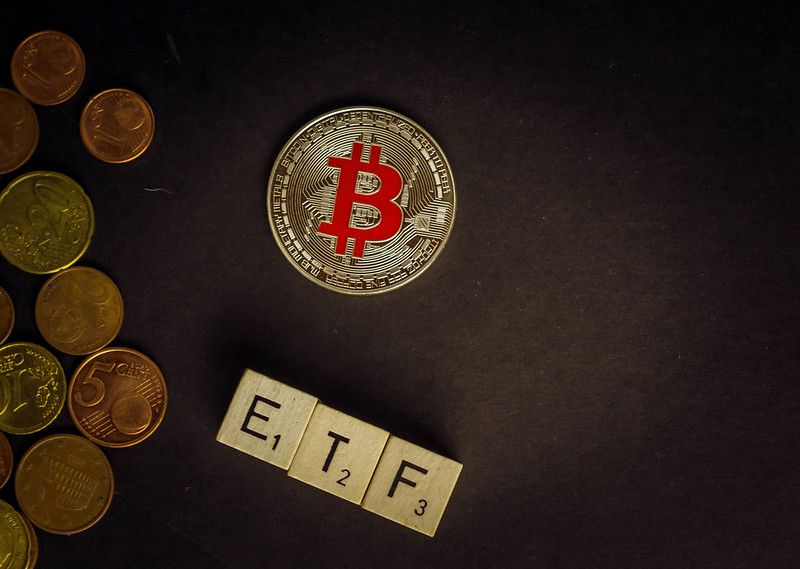Jun 12, 2021
SEC warns on Bitcoin futures funds, not ETFs

No currently filed U.S. Bitcoin ETF plans to touch futures
There’s no getting away from it. The ‘messaging’ from Gary Gensler’s SEC of late has been problematic for crypto – particularly for the burgeoning institutional cryptoasset investment sector.
With 8 heavyweight applications to list the first U.S. Bitcoin ETF currently on the SEC’s desk—including four under active review that propose to calculate NAV based on regulated CF Benchmarks prices—the potential read-across from ‘negative’ SEC messaging suggests disappointment, particularly in light of the SEC’s recent decision to extend the review period for two of the most credible applications.
On closer inspection however, we don’t believe that such a pessimistic interpretation makes sense. We explain why below, but first, a recap of those comments.
Second warning
On Friday, for the second time within a month, the SEC published a statement containing strongly worded cautions to investors considering a fund with “exposure to the Bitcoin futures market”. This time, the commission used the medium of an ‘Investor Alert’ from the Office of Investor Education and Advocacy –jointly with the CFTC’s Office of Customer Education and Outreach—to reiterate that investors face enhanced risk of a “Potential loss of the investment” … “for positions in Bitcoin futures contracts because of the high volatility of Bitcoin futures”. The statement noted that “positions in Bitcoin and Bitcoin futures contracts are highly speculative.” Additionally, the SEC implored investors to recognise “the potential for fraud and manipulation in the underlying cash or “spot” Bitcoin market.”
A month earlier, the commission’s Division of Investment Management published a ‘Staff Statement on Funds Registered Under the Investment Company Act Investing in the Bitcoin Futures Market’. Similar to the commentary that would follow four weeks later, the May statement strongly urged investors “interested in a mutual fund with exposure to the Bitcoin futures market…to carefully consider the risk disclosure of the fund, the investor’s own risk tolerance, and the possibility, as with all investing, of investor loss”.
Investment Management divisional staff made clear that the valuation of Bitcoin futures holdings in any forthcoming funds would be closely eyed. “Ongoing impact of the potential for fraud or manipulation in the underlying Bitcoin market”, was also duly mentioned.
Echoes of Gensler
In many respects, the statements echoed Gary Gensler, the SEC chairman sworn into office in April, having made several speeches ahead of his confirmation riffing, most pointedly, on the theme of ‘potential manipulation’. It’s a theme that he continued to elaborate on this week:
“Investors should be aware—I’m saying this in my own voice—that the underlying Bitcoin cash markets, there’s not the robust oversight that you have in the stock market or the derivatives markets”
– SEC Chair Gary Gensler quoted in Barrons.com
All in, there’s not a great deal of doubt that the SEC is attempting to make a deliberate point. The question is ‘why?’ Unfortunately, we’re unlikely to ever find out the commission’s exact motivation.
A little knowledge
On the other hand, whilst the cogency and appropriateness of the SEC’s warnings and concerns are undeniable, it’s difficult to avoid drawing conclusions from the content: By and large, the commissions warnings and concerns are applicable to pretty much any tradeable commodity, a fact that is readily recognised by anyone knowledgeable about a broad range of financial asset markets. That is perhaps the point. Less than ‘sophisticated’, knowledgeable, or experienced investors appear to be the most appropriate audience for the SEC’s recent comments about the pitfalls of the volatile, potentially manipulable Bitcoin markets.
Such qualities in themselves can imply theoretically high liquidity risks in Bitcoin derivatives. Again, such qualities and risks are recognisable by more knowledgeable participants as not germane to Bitcoin.
A salient example: In 2010, the CFTC, under its then chairman Gary Gensler, conducted a successful prosecution of Merrill Lynch Commodities, Inc. (MLCI). According to the CFTC’s website at the time, it filed and simultaneously settled charges against MLCI “for spoofing, manipulation, and attempted manipulation over a six-year period with respect to certain precious metals futures contracts traded on the Commodity Exchange, Inc. (COMEX).”

Looking back, that event reminds us that SEC chair Gary Gensler, the former MIT cryptocurrency professor, is demonstrably cognisant of commodity market risks. Of course, Gensler is aware that Bitcoin, which was explicitly identified as “a commodity” in Friday’s SEC/CFTC statement, is not unique as being subject to such risks.
Which regulated Bitcoin futures?
Additionally, the SEC’s May statement, in particular, was nuanced in relation to Bitcoin futures “traded on an exchange regulated by the U.S. Commodity Futures Trading Commission”. The CME is a directly CFTC-regulated exchange whose Bitcoin futures contracts settle to CF Benchmarks’ Bitcoin Reference Rate (BRR).
Furthermore, comparing the Bitcoin futures market with the state of its development “shortly after (CME Group) Bitcoin futures began trading in December 2017”, the SEC acknowledged that “The Bitcoin futures market has developed since then, with increased trading volumes and open-interest positions. In addition, the Bitcoin futures market consistently has produced a reportable price for Bitcoin futures.”
From a broader perspective then, the SEC’s insistent warnings ought not to be mechanically read as a signal against the approval of a U.S. Bitcoin ETF in the relatively near term.
No futures?
It is also important to note that none of the 8 Bitcoin ETF filings in the SEC’s queue plan to utilise Bitcoin futures as part of their investment strategies.
It therefore appears that the SEC’s comments were not aimed—at least not directly—at the current crop of prospective Bitcoin ETF providers. However, a number of outstanding crypto fund filings to the SEC do include Bitcoin futures.
Teucrium’s Teucrium Bitcoin Futures Fund ETP was filed in May. Invesco’s Galaxy Crypto Economy ETF was filed this week. Invesco’s fund would be closer to an equity sector ETF than a crypto ETF, but its filing specified “front month futures contracts on cryptocurrencies with more than $10 million in open interest that are traded on the Chicago Mercantile Exchange”.
Four-point payoff
So where does all this leave things with regards to prospects of an SEC-approved Bitcoin ETF, preferably this year? We’ll make four concluding points.
- A close examination of the commission’s recent admonishments strongly suggests that its concerns on fund exposure to Bitcoin Futures do not have a great deal of bearing on pending Bitcoin ETF decisions
- The SEC’s acknowledgement of the regulated Bitcoin futures market’s progress over time is an important modifier of its stance
- SEC concerns about potential “fraud or manipulation in the underlying Bitcoin market” are a welcome opportunity to highlight CF Benchmarks’ quantitative research into the CME CF Bitcoin Reference Rate (BRR). The research demonstrates to a high, quantifiable degree that the BRR is possessed of sufficient liquidity, market representativeness, replicability and above all, that it is free of manipulation and is manipulation resistant
- The regulated benchmark is used for settling CME Bitcoin Futures and calculating NAVs for existing Bitcoin ETFs and other investment products. Four of the current eight U.S. ETF applicants include either the BRR or its U.S. closing time sister index for daily valuations
So, whilst the scope for the SEC to reject BRR-powered ETF applications is almost impossible to quantify, those utilising the global Bitcoin benchmark do appear to have an objectively higher chance of approval than those that do not.
The information contained within is for educational and informational purposes ONLY. It is not intended nor should it be considered an invitation or inducement to buy or sell any of the underlying instruments cited including but not limited to cryptoassets, financial instruments or any instruments that reference any index provided by CF Benchmarks Ltd. This communication is not intended to persuade or incite you to buy or sell security or securities noted within. Any commentary provided is the opinion of the author and should not be considered a personalised recommendation. Please contact your financial adviser or professional before making an investment decision.
Note: Some of the underlying instruments cited within this material may be restricted to certain customer categories in certain jurisdictions.

Ken Odeluga


